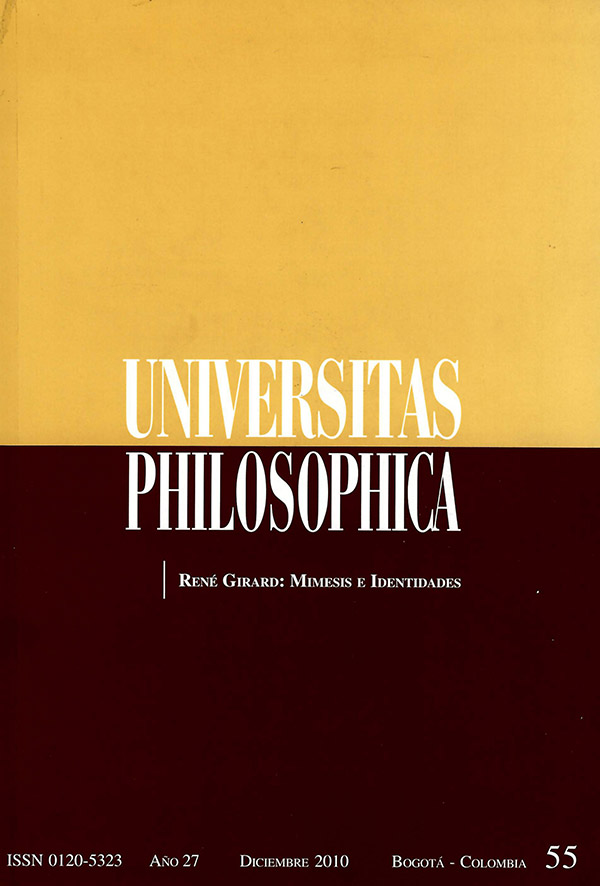Abstract
As a part of the setting-up of his mimetic theory, René Girard produces a particular way of reading the different events, processes, characters and issues of history. In such interpretation it is possible to trace elements of a sort of philosophy of history including not only an special posture on the historical method of reconstruction, comprehension and elucidation, which belongs to the historiographic discipline, but a series of consequences referred to the theory of history with respect to its end and organization. The foregoing could provide new paths to continue the exploration within the depth of the French philosopher’s thought.
This journal is registered under a Creative Commons Attribution 4.0 International Public License. Thus, this work may be reproduced, distributed, and publicly shared in digital format, as long as the names of the authors and Pontificia Universidad Javeriana are acknowledged. Others are allowed to quote, adapt, transform, auto-archive, republish, and create based on this material, for any purpose (even commercial ones), provided the authorship is duly acknowledged, a link to the original work is provided, and it is specified if changes have been made. Pontificia Universidad Javeriana does not hold the rights of published works and the authors are solely responsible for the contents of their works; they keep the moral, intellectual, privacy, and publicity rights.
Approving the intervention of the work (review, copy-editing, translation, layout) and the following outreach, are granted through an use license and not through an assignment of rights. This means the journal and Pontificia Universidad Javeriana cannot be held responsible for any ethical malpractice by the authors. As a consequence of the protection granted by the use license, the journal is not required to publish recantations or modify information already published, unless the errata stems from the editorial management process. Publishing contents in this journal does not generate royalties for contributors.


